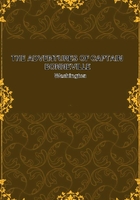
第40章 Irving’s Bonneville - Chapter 13(2)
innocent as children. The chief grew jealous, and commanded her to speak with me no more. Hisheart became hard toward her; his jealousy grew more furious. He beat her without cause andwithout mercy; and threatened to kill her outright if she even looked at me. Do you want tracesof
his fury? Look at that scar! His rage against me was no less persecuting. War parties of theCrows
were hovering round us; our young men had seen their trail. All hearts were roused for action;my
horses were before my lodge. Suddenly the chief came, took them to his own pickets, and calledthem his own. What could I do? he was a chief. I durst not speak, but my heart was burning. Ijoined
no longer in the council, the hunt, or the war-feast. What had I to do there? an unhorsed,degraded
warrior. I kept by myself, and thought of nothing but these wrongs and outrages.
"I was sitting one evening upon a knoll that overlooked the meadow where the horses werepastured.
I saw the horses that were once mine grazing among those of the chief. This maddened me, and Isat
brooding for a time over the injuries I had suffered, and the cruelties which she I loved hadendured
for my sake, until my heart swelled and grew sore, and my teeth were clinched. As I lookeddown
upon the meadow I saw the chief walking among his horses. I fastened my eyes upon him as ahawk's; my blood boiled; I drew my breath hard. He went among the willows. In an instant I wason
my feet; my hand was on my knife --I flew rather than ran -- before he was aware I sprang uponhim, and with two blows laid him dead at my feet. I covered his body with earth, and strewedbushes
over the place; then I hastened to her I loved, told her what I had done, and urged her to fly withme.
She only answered me with tears. I reminded her of the wrongs I had suffered, and of the blowsand
stripes she had endured from the deceased; I had done nothing but an act of justice. I again urgedher
to fly; but she only wept the more, and bade me go. My heart was heavy, but my eyes were dry. Ifolded my arms. ' 'Tis well,' said I; 'Kosato will go alone to the desert. None will be with him butthe
wild beasts of the desert. The seekers of blood may follow on his trail. They may come upon himwhen he sleeps and glut their revenge; but you will be safe. Kosato will go alone.
"I turned away. She sprang after me, and strained me in her arms. 'No,' she cried, 'Kosatoshall not
go alone! Wherever he goes I will go -- he shall never part from me.
"'We hastily took in our hands such things as we most needed, and stealing quietly from thevillage,
mounted the first horses we encountered. Speeding day and night, we soon reached this tribe.
They
received us with welcome, and we have dwelt with them in peace. They are good and kind; theyare
honest; but their hearts are the hearts of women.
Such was the story of Kosato, as related by him to Captain Bonneville. It is of a kind thatoften
occurs in Indian life; where love elopements from tribe to tribe are as frequent as among thenovel-read heroes and heroines of sentimental civilization, and often give rise to bloods andlasting feuds. [Return to Contents].